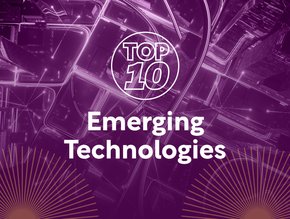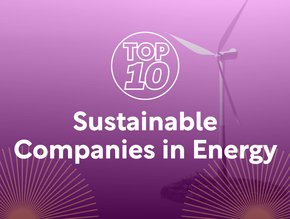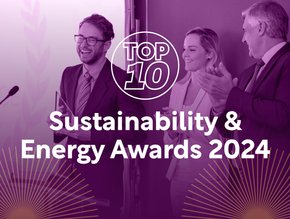
The energy employment landscape is driven by a number of factors related to sustainability and renewable energy transition. Whether an organisation has a renewable-first approach or is shifting from fossil fuels to sustainable energy solutions—as we’re seeing from the likes of Shell, bp, and other major energy firms—they must acquire suitable professionals to carry out their goals.
Alternatively, allowing personnel to evolve with the organisation can be done through energy certification, which is where the following list comes into play.
Look no further for the Top 10: Energy Certifications, which are ever more important as firms look to fulfil their sustainability strategies.
10. Certified Demand-Side Management Professional (CDSM)
This certification, offered by the Association of Energy Engineers (AEE), focuses on demand-side management strategies, including load management, demand response programmes, and energy efficiency initiatives.
This accreditation is generally suited towards professional consultants in energy efficiency, planning teams and side-management of energy utilities, as well as those dealing with energy procurement and utilisation.
9. Building Performance Institute (BPI) Certifications
BPI offers a number of certifications related to energy efficiency and building performance, including certifications for energy auditors, envelope professionals, heating and cooling professionals, and building analysts.
Certifications under the BPI are suited towards many roles responsible for aspects of the built environment, including building scientists and trainers, energy auditors, green building professionals, home contractors, and HVAC specialists.
8. Certified Energy Procurement Professional (CEP)
Provided by the AEE, the CEP accreditation focuses on energy procurement strategies, energy markets, and contract negotiations to help organisations optimise their energy purchasing decisions.
Directed towards procurement professionals, the aim of the CEP is to provide expert energy industry consultants with a recognised standard as someone who buys, sells, trades or markets energy. Such professionals will be responsible for defining energy targets, and combining them with procurement to reduce or avoid costs in the process.
7. Certified Sustainable Development Professional (CSDP)
The AEE offers this certification to professionals involved in sustainable development, including energy efficiency, renewable energy, waste management, and environmental conservation.
CSDPs are recognised for their understanding of policy, technical requirements of energy, programme analysis, and financial assessments, which relate to sustainable development. By understanding a variety of approaches to this, they are able to leverage experiences with governmental sectors and institutions to achieve green targets in construction, and mitigate environmental impacts, reduce carbon, plan for sustainable projects, and more.
6. Certified Carbon Auditing Professional (CAP)
The AEE offers the CAP accreditation that focuses on carbon management strategies, including greenhouse gas emissions reduction, carbon footprint analysis, and carbon offset projects.
As an auditor, certified members of the team will look at ways to measure and communicate carbon impacts and coordinate with teams to reduce the impacts of unsustainable energy processes. Perhaps one of the most influential accreditations to have in 2023, the CAP makes an individual a major contributor to climate-neutral strategies.
5. Project Management Professional (PMP)
While not specifically an energy certification, the PMP credential, awarded by the Project Management Institute (PMI), is highly regarded in the field. It demonstrates expertise in managing energy projects and ensuring their successful implementation.
Project management from an energy perspective is more than simply seeing work through to the final goal, but doing so sustainably. While there are many ways in which someone can become a project manager, professional accreditation by the PMI will provide the skills aligned with net-zero goals.
4. Certified Energy Auditor (CEA)
The AEE offers this certification to professionals involved in energy auditing, energy conservation measures, and energy efficiency assessments.
The types of task that complement this credential include surveying, risk mitigation analysis, planning, and investment-grade analysis, of which auditors will ensure aligned to the predefined standards like the ASHRAE Standard 211-2018 for Commercial Building Energy Audits.
3. Certified Renewable Energy Professional (REP)
Certification provided by the AEE, this certification focuses on renewable energy technologies, including solar, wind, biomass, and geothermal systems.
Perhaps a more broad-sounding professional accreditation, such a professional is responsible for a holistic focus on renewable energy generation, including production and storage, and everything in between. Assisting with various corporate aspects, the REP will help set sustainability goals that generally support truly renewable power supplies.
2. LEED Accredited Professional (LEED AP)
The Leadership in Energy and Environmental Design (LEED) certification is widely recognized for sustainable building design and construction. The LEED AP credential signifies expertise in energy-efficient practices.
The title is supplied through the US Green Building Council and recognises proficiency in the current sustainable design criteria and operational standards. The aim of the LEED AP is to showcase professional knowledge of the green building marketplace.
1. Certified Energy Manager (CEM)
This certification is offered by the AEE and demonstrates expertise in energy management, including energy auditing, efficiency improvements, and renewable energy integration.
Usually a CEM certified individual is a manager or team leader within strategic energy management teams. The CEM title has gained more attention from businesses acting on sustainability as they look to strengthen their approaches to the evolving energy market, aligned to sustainable outcomes.






